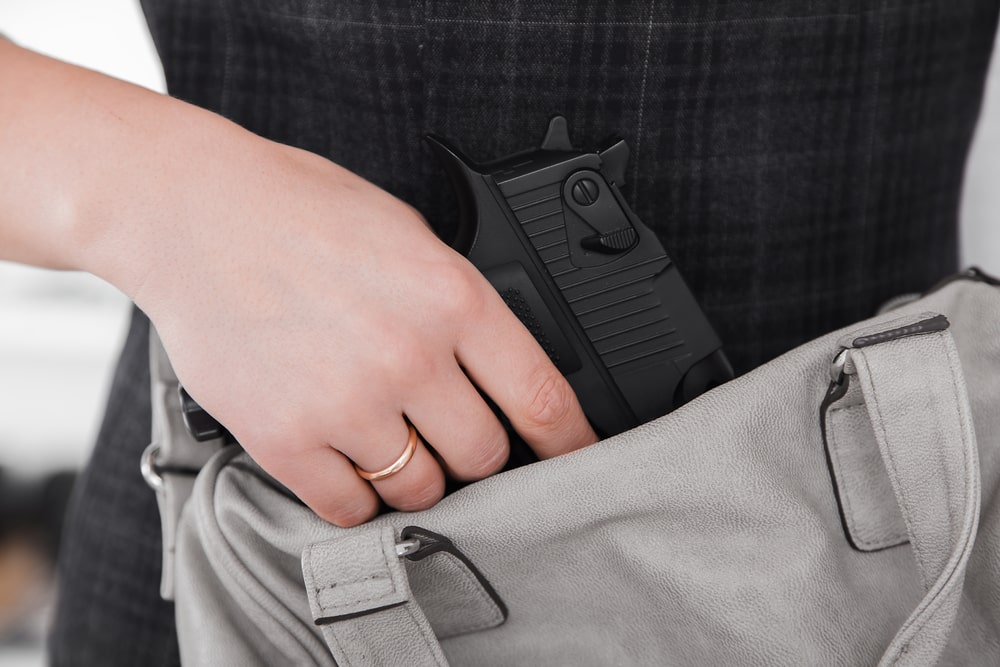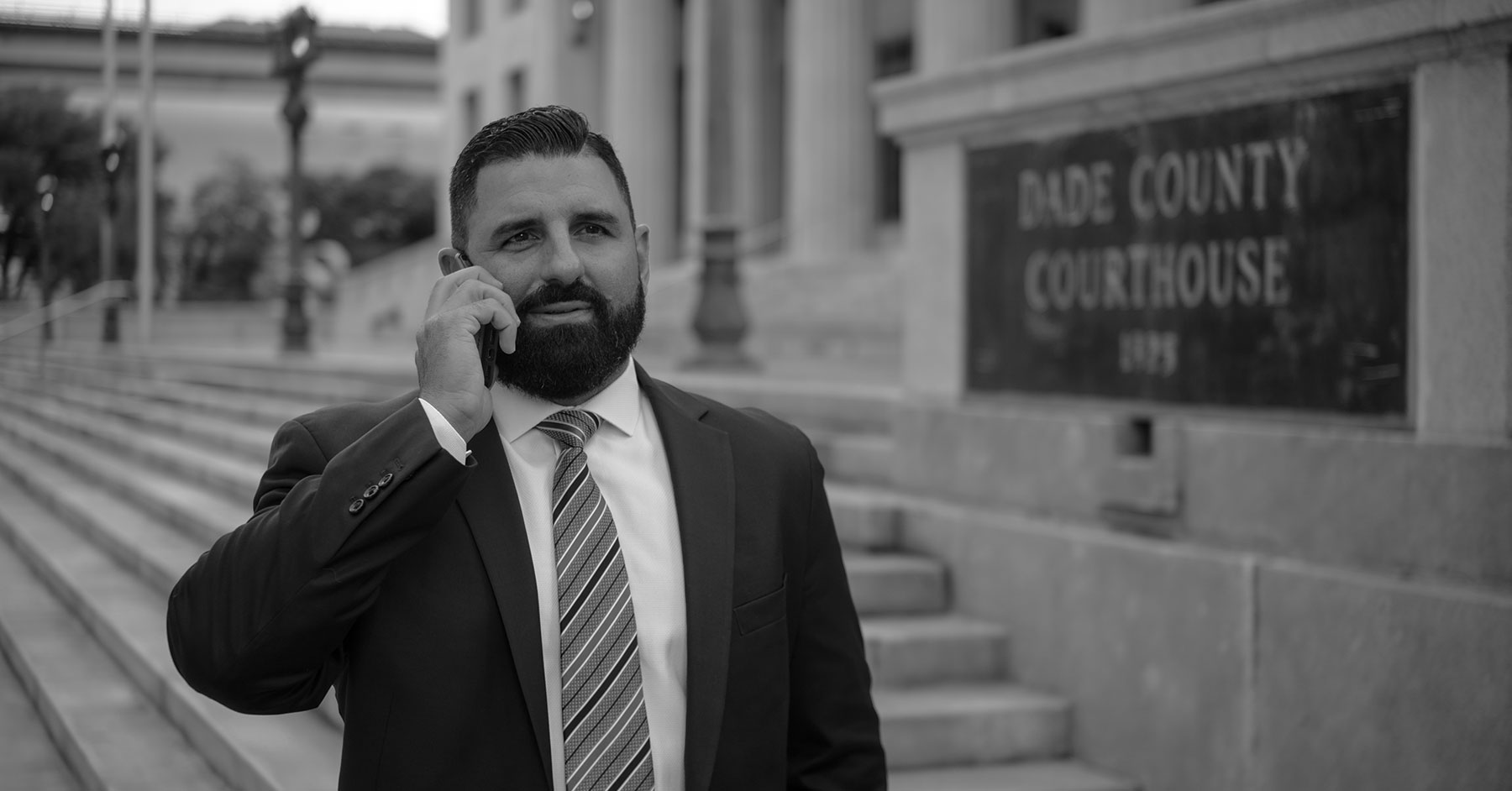Carrying a Concealed Weapon Charges in Florida

Under our Constitution, Americans have the right to keep and bear arms — but with these rights also come certain restrictions.
Firearms owners must have a valid gun license and, to carry a concealed weapon, require a special permit in most states.
Carrying a concealed weapon without a valid license in Florida can lead to criminal charges — and a conviction comes with a multitude of negative consequences for one’s future.
Even if you didn’t intend to cause anyone harm or commit an offense, simply carrying a concealed weapon is a criminal offense in Florida without a suitable license.
If you have been charged with this offense in the Miami area, it is imperative to defend the charge aggressively with a suitably qualified criminal defense lawyer.
What leads to a “carrying a concealed weapon” charge in Florida?
Many people think that a “concealed weapon” refers only to a hidden firearm. While the definition includes concealed handguns and the like, a concealed weapon can equally refer to any of the following under Florida Statutes section 790.001(3):
- Metallic knuckles
- Tear gas guns
- Billy clubs
- Slingshots
- Knives/dirks
- Tazers
- Chemical weapons or devices
In fact, any potentially deadly weapon that can be carried in a way that conceals it from ordinary sight can be classified as a “concealed weapon”. This may include some items not generally considered to be weapons (if carried in a culpable way).
A judge or jury will consider whether the accused carried the object knowingly as a concealed weapon.
When it comes to firearms, the definition not only includes the destructive devices themselves but also firearm accessories, such as firearm mufflers and firearm silencers.
“Concealed” usually means hidden on or about someone’s person: in a pocket or holster not made visible, wedged in a belt, hidden under clothes or carried in a purse or bag. It can also mean readily accessible to the individual, like a weapon hidden in the glove compartment of a vehicle. The weapon need not be completely hidden, though.
Without a valid license, you can be charged with carrying a concealed weapon if you do it knowingly. The offense is generally classified as a third-degree felony or a first-degree misdemeanor in Florida, the serious penalties for which are detailed below.
Note that concealed carry is legal for residents with a Florida Concealed Weapons License (CWL) and non-residents with a Carrying a Concealed Weapon (CCW) permit from a state that Florida honors.
Penalties for carrying a concealed weapon charges
The penalties for carrying a concealed weapon charge in Florida depend mainly on the circumstances of the arrest and the criminal history of the defendant.
Charges may proceed as a third-degree felony or first-degree misdemeanor. For a first offense, the latter is more likely to apply. This can still lead to the following penalties:
- A county jail sentence of up to one year
- Up to a year on probation
- Up to $1,000 in fines
For defendants with prior convictions and/or other aggravating circumstances, a felony charge usually applies, which can result in:
- A prison sentence of up to five years
- Up to five years on probation
- Up to $5,000 in fines
Potential defenses for a concealed weapon charge in Florida
If you’re faced with a concealed weapons charge, it can be an intimidating experience but there is a good chance we can successfully fight the case — or at least reduce the harsh consequences of a conviction.
The burden of proof for the prosecution is high in these types of criminal cases. The prosecutor must prove the following beyond a reasonable doubt:
- The defendant knowingly carried on or about his or her person a firearm or weapon.
- The firearm or weapon was concealed from the ordinary sight of another person.
Several effective defenses are available for such charges, including:
- Valid permit: the defendant had permission to carry a concealed weapon.
- No weapon: the object that the accused was in possession of was not a weapon under the applicable law.
- No knowledge: the defendant did not know that he/she was carrying a firearm.
- Not concealed: the weapon was not concealed (e.g., the police found a firearm in the defendant’s vehicle during a traffic stop but it was securely encased in a gun box (not on the person or readily accessible).
A concealed weapon or firearm cannot be used by law enforcement as the sole basis for detaining or arresting an individual in Florida. If this is the case, the evidence obtained can be suppressed under the Fourth Amendment exclusionary rule, which is highly likely to result in the case against the defendant being dismissed.
Are there exceptions to a concealed weapon charge?
Before filing concealed weapons charges against an individual, law enforcement must bear in mind the exceptions to the law — of which there are several, including:
- Carrying certain weapons designed for defense (such as stun guns or chemical sprays) in a concealed way for lawful self-defense purposes.
- Carrying a concealed weapon during the act of evacuation during a mandatory evacuation order issued by the governor or local authority during a state of emergency.
- Carrying a securely encased weapon in a private motor vehicle or conveyance” that is not “readily accessible for immediate use”.
- Carrying a concealed weapon at home or in one’s place of business.
- Carrying a concealed weapon when the person is engaged in fishing, camping or lawful hunting — or is traveling for such purposes.
If you have been arrested for carrying a concealed weapon in or around the Greater Miami area, it’s essential to treat the charge seriously. Harsh punishments may follow.
A seasoned concealed weapons charge lawyer can often raise reasonable doubts about the charge.
If you require legal representation for a concealed weapons charge, please do not hesitate to contact us online or by phone at (305) 403-7323 for a free initial consultation.

